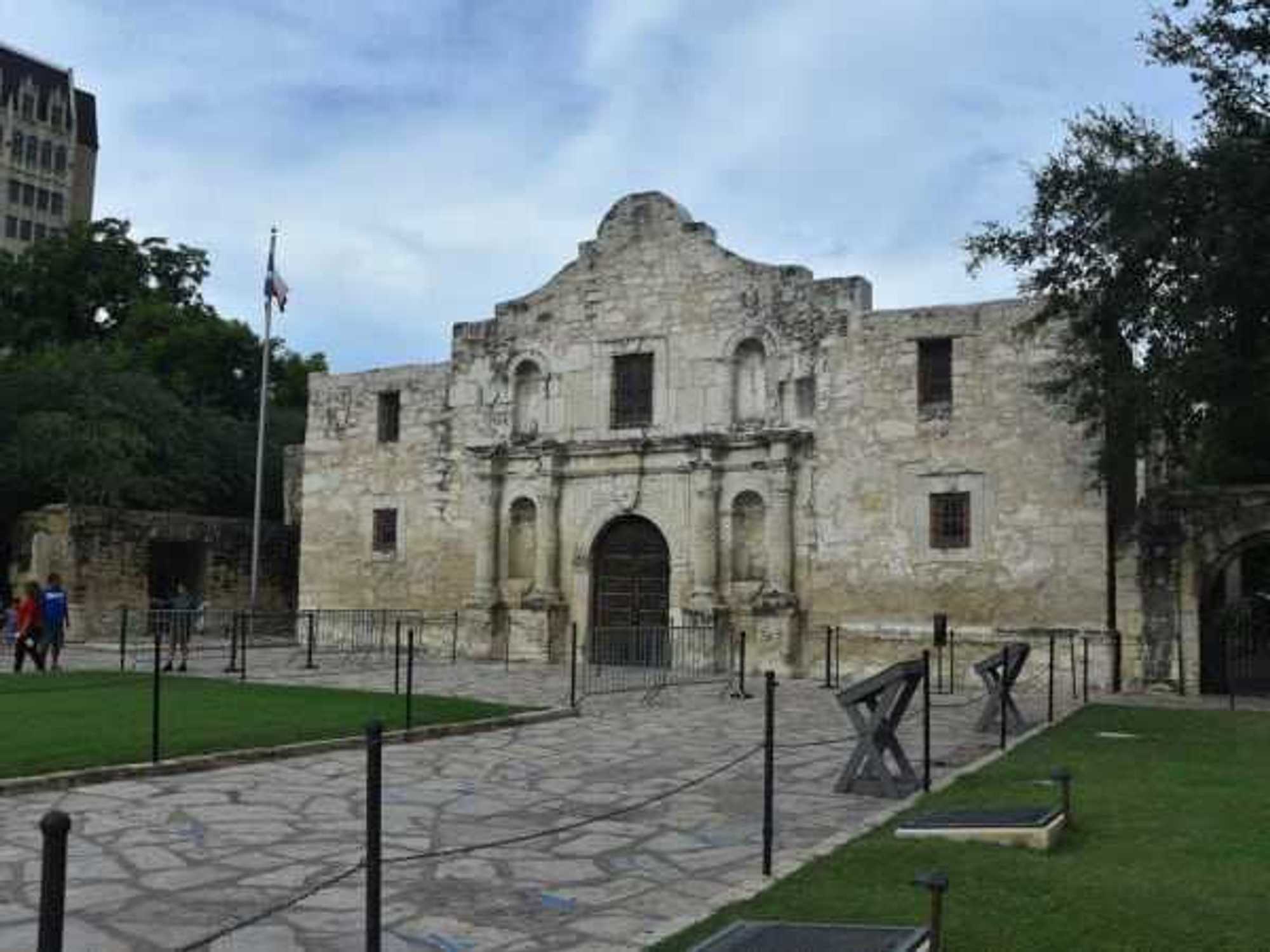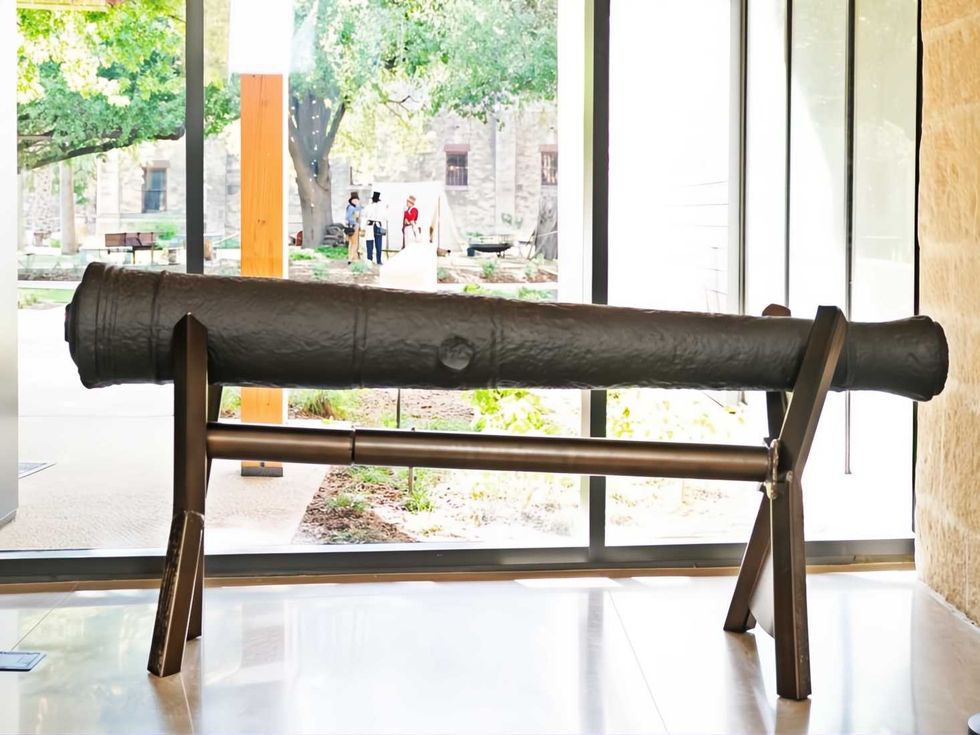Air wars
Southwest will foot $100 million Hobby expansion, Mayor Parker says in pep rallypress conference
 Mayor Annise Parker was surrounded by city council members who plan to supportSouthwest Airlines' proposal for a new international terminal at Hobby Airport.Photo by Clifford Pugh
Mayor Annise Parker was surrounded by city council members who plan to supportSouthwest Airlines' proposal for a new international terminal at Hobby Airport.Photo by Clifford Pugh Gary Kelly, chairman and CEO of Southwest Airlines, says the increasedcompetition that will result from Southwest flights to Mexico and Latin Americawill be good for Houstonians.Photo by Clifford Pugh
Gary Kelly, chairman and CEO of Southwest Airlines, says the increasedcompetition that will result from Southwest flights to Mexico and Latin Americawill be good for Houstonians.Photo by Clifford Pugh
In a Hobby Airport press conference that seemed more like a pep rally, Mayor Annise Parker announced that Southwest Airlines has agreed to foot the entire $100 million bill to add an international terminal at the southeast Houston airport.
"I want to be very clear and succinct, Southwest Airlines has agreed to pay for all of expenses," Parker said, as she was drowned out by applause. "That's it."
Standing next to Southwest Airlines CEO Gary Kelly, the mayor was surrounded by the airline's employees in T-shirts with the words, "Houston, we have a solution," emblazoned on the front.
"We are big city in a growing region. We can handle two international airports," Parker said.
The "memorandum of understanding" between the city and Southwest, which underwent last-minute fine-tuning late Tuesday, must be approved by Houston City Council. But Parker appeared confident she has more than the necessary nine council votes to approve the deal.
"I wouldn't be standing here if I didn't," she said, as a several council members stood by her at the end of the press conference.
The council is expected to consider the proposal at the May 30 meeting.
Previous proposals called for the terminal to be funded by a tax on each passenger. But Parker said no such "passenger facility charge" is involved in the latest proposal, which calls for Southwest to bear all construction costs of the facility, which the city will own debt-free. She also said the airport authority will not issue bonds for construction.
In a 25-year-lease, Southwest will get rent-free use of four of five gates in the new terminal, along with rent-free use of a new customs facility to process passengers from overseas flights. Other airlines that use the fifth gate will pay rent, along with fees to use the customs facility.
"Truly it's that simple," Parker said. "When partners negotiate in good faith, all with the best interests of the consumer and the taxpayers of this region, you can come to a deal that will stand on its own like that."
Southwest and other carriers who operate international flights out of Hobby will receive a rebate of airport revenues for every additional passenger "that would not otherwise be serviced by this airport," Parker said. "This rebate is based solely on anticipated increase in concession sales inside the airport. It is not automatic. If there's not an increase, they don't get anything."
The rebates are capped at $3.9 million a year.
Parker added that the city remains committed to the growth of Bush Intercontinental Airport, the hub for United Airlines, which has vociferously objected to Southwest's plans to use Hobby as a hub for international flights to Mexico.
"But we are big city in a growing region. We can handle two international airports," she said.
"Competition is good," Kelly said. "Houston has suffered from monopoly airfares to Mexico, Central America, the Caribbean and South America long enough."
The 20 additional daily flights from Hobby, which are expected to begin in 2015, will still put the airport below the historical record of 1997, Parker noted. "But we think that with this partnership we'll get there a lot faster than we could have some other way," she said.
Southwest CEO Kelly admitted the deal "does sound too good to be true, but that's the way we do business at Southwest Airlines. In the end we bear the risks to expand the airport, and certainly we have made some commitments we want to follow through."
Kelly added the best way to increase traffic at Hobby is to institute international service. He maintained that Southwest's entry into the international market will benefit both Houston airports.
"Competition is good," he said. "Houston has suffered from monopoly airfares to Mexico, Central America, the Caribbean and South America long enough. We will bring lower fares and more competition. It will be more jobs. And we're very excited about the opportunities."
Parker declined to estimate the number of jobs that will result from the expansion. The number has varied, from a city report of 10,000 jobs to Kelly's estimate of as few as 50 added Southwest jobs over an eight-year period, which he stated when he appeared before city council.
"Splitting the city's international air service will harm the city's competitive advantage and cost jobs," Clark said.
Construction is planned to being in spring 2013.
During the press conference, former Texas Lt. Gov. Bill Hobby sat in the front row, with a broad grin. The airport is named for his father, former Gov. William P. Hobby.
"It's a no-brainer," Hobby said about the deal, before getting in a dig at Southwest's archrival, United.
"I find it amazing that Continental/United says they are concerned about Houston job losses. They weren't so concerned when they moved their headquarters from Houston to Chicago."
In an email statement, United spokesperson Mary Clark said the airline has not seen Parker's proposal.
"But there is no funding plan that makes this proposal good for Houston," Clark wrote. "Splitting the city's international air service will harm the city's competitive advantage and cost jobs. We will continue to advocate that maintaining a single international airport is the best policy for Houston's future."

 This Alamo artifact gives an idea of what the cannon will look like once restoration is complete.Photo courtesy of the Alamo.
This Alamo artifact gives an idea of what the cannon will look like once restoration is complete.Photo courtesy of the Alamo.